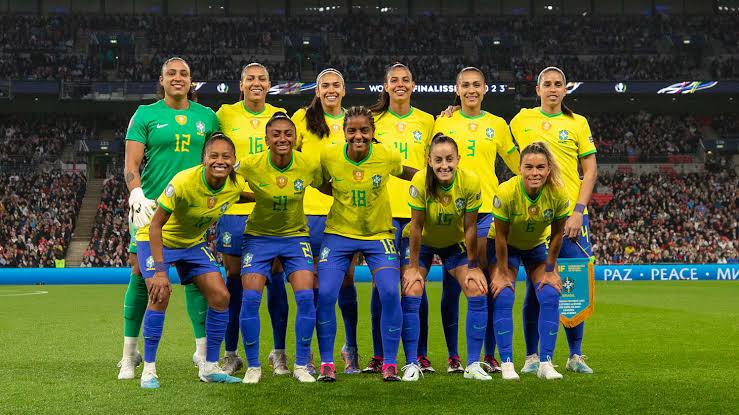Brazil to Host 2027 Women’s World Cup
The Women’s World Cup will be held in South America for the first time, with Brazil chosen as the host for the 2027 edition. The announcement was made at a FIFA congress on Friday, which was also marked by debate over the war in Gaza.
Following the successful joint tournament held by Australia and New Zealand last year, FIFA members opted for Brazil over a European bid, aiming to expand women’s football to new continents. The decision was made with 119 votes in favor of Brazil against 78 for the joint bid from Belgium, the Netherlands, and Germany. The Brazilian bid team’s celebrations were indicative of the significance of this achievement.
Ednaldo Rodrigues, President of the Brazilian Football Confederation, described the decision as a “victory for Latin American football and for women’s football in Latin America.” FIFA’s evaluation report highlighted Brazil’s higher scores compared to its European rival, noting the “tremendous impact on women’s football in the region” that hosting the Women’s World Cup would bring.
Brazil’s bid includes 10 stadiums used during the 2014 men’s World Cup, with Rio de Janeiro’s iconic Maracana stadium set to host both the opening match and the final. However, some venues, such as the Amazonia stadium in Manaus, will require significant work after being largely unused for nearly a decade.
While Brazil’s men’s team has won five World Cups, their women’s team has yet to claim the trophy and exited at the group stage in 2023. Last year’s tournament set numerous records, including generating $570 million in commercial revenue, and saw over 1.4 million fans attend the matches. The tournament also defied concerns that expanding from 24 to 32 teams would dilute the competition’s quality.
The success of the previous World Cup was highlighted by seven teams securing their first wins and traditional powerhouses like the United States and Germany being eliminated early. The only controversy from the 2023 event involved Spanish Football Federation chief Luis Rubiales, who is facing prosecution for sexual assault after forcibly kissing midfielder Jenni Hermoso during the medal ceremony.
The 74th FIFA Congress, held in Thailand, chose Brazil by open vote for the first time, as part of ongoing efforts to distance itself from past corruption scandals. The decision was simplified after the United States and Mexico withdrew their joint bid to focus on securing the 2031 edition instead.
As the Brazil tournament approaches, attention will likely turn to the financial disparity between men’s and women’s football. Despite a record $110 million in prize money for the 2023 Women’s World Cup, it remains significantly less than the $440 million awarded at the 2022 men’s World Cup in Qatar.
The congress also featured a call from the Palestinian FA (PFA) to suspend Israel from FIFA and ban Israeli teams from its events. PFA head Jibril Rajoub accused the Israeli FA (IFA) of violating FIFA rules and contributing to ongoing violence in Palestine. Israeli counterpart Shino Moshe Zuares dismissed the accusations as “cynical, political and hostile.”
FIFA President Gianni Infantino stated that independent legal advice would be sought on the matter, with a decision expected by July 20.
Significant changes were also approved during the congress, including the potential relocation of FIFA’s headquarters from Zurich and an increase in the number of committees from seven to 35. These new committees will cover areas such as women’s football, the fight against racism, and eSports. However, critics argue that these changes risk re-establishing a patronage system that previous reforms aimed to eliminate.
Infantino also proposed new initiatives, including an under-15 World Cup or festival and a “legends” World Cup.
Overall, Brazil’s selection as the host for the 2027 Women’s World Cup marks a historic moment for South American football and reflects FIFA’s commitment to broadening the global reach of the sport.
AFP



